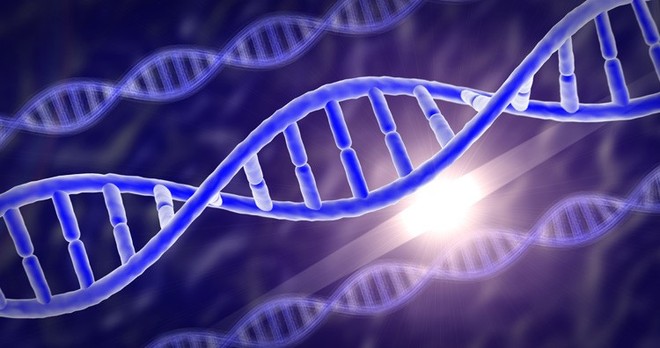A study conducted by a team of Cambridge researchers, has revealed that some people have a unique genetic code that helps them maintain their body weight throughout their lives. While previous research has shed light on the influence of genetics on obesity, this recent study focused instead on being thin.

The study, published in the journal PLOS Genetics, is the largest of its kind to date. The team compared the DNA of about 14,000 people and separated them into different weight groups to find out how genes might affect a person’s weight.
Sadaf Farooqi, a professor at the Wellcome-MRC Institute for Metabolic Sciences at the University of Cambridge, led the research supported by the European Research Council and Wellcome. The goal of the study was to examine how and why some people are more likely to be slim than others. Previous studies have shown faulty genes to be responsible for the severe obesity that often occurs at a young age. However, this particular study has suggested that the combination of “thin” genes, or rather the absence of “obesity-related genes” can help a person own a slim body. tomorrow than others.
Professor Farooqi and his team, in collaboration with Wellcome’s Dr Inês Barroso, collected and compared the DNA of about 14,000 participants, of which 1,622 were lean, 1,985 volunteers were classified as obese. severely obese, and the remaining 10,433 were of normal weight.
Human DNA is made up of a sequence of molecules known as “base pairs”. The letters A, C, G, and T represent the base pairs and their sequences that make up the genetic region directly related to weight. Our genes dictate how our bodies work and variations, such as traits like eye color, hair color and, of course, weight.

The team had previously identified several genetic variants that were associated with obesity. However, recent research has uncovered new genetic regions that may be responsible for healthy thinness. Four newly discovered regions of the human genome have a direct impact on birth weight, providing evidence that birth weight is linked to health in adulthood.
In studying and comparing the participants’ DNA, Professor Farooqi and his team found several genetic variants that had previously been identified as causing obesity. However, recent research has revealed new genetic regions, some of which are thought to be responsible for severe obesity, while others are thought to play a role in underweight. strong. To find out how these genes affect a person’s weight, the researchers took into account all the different genetic variations and came up with a genetic risk score.
As they suspected, obese people had higher genetic risk scores that made them more likely to be overweight than people of normal weight. On the other hand, lean people had significantly lower genetic risk scores. They also lacked genetic variants known to cause obesity. Therefore, research has shown that people who stay thin no matter what they eat have some genes that regulate their weight.

The study results help confirm that there are 3 predefined regions and 4 newly discovered regions located on genetics that are directly related to weight. One of the new genetic regions is also linked to blood pressure in adulthood, providing clues between birth weight and blood pressure. Two other regions determine adult height, indicating the presence of growth genes very early from the time the embryo is formed and developed. While genes can determine a person’s weight, that doesn’t mean one should give up on a healthy diet.
Analyzing more than 20,000 genes from adipose tissue samples from more than 800 women in the UK and from more than 600 others from Iceland, scientists have found that the KLF14 gene plays an important role in increasing the risk of the disease. diabetes and obesity.
Dr Tim Spector, who led the study, said: “This is the first large-scale study to show the influence of genes on metabolic processes in the body, specifically the risk of diabetes. diabetes and obesity”.
Currently, about 1 in 10 adults in the world (500 million people) are obese. This is double what it was in the 1980s. In the US, obesity-related diseases account for nearly 10% of the country’s health budget ($147 billion/year). In the UK, 62% of adults are obese.
.
